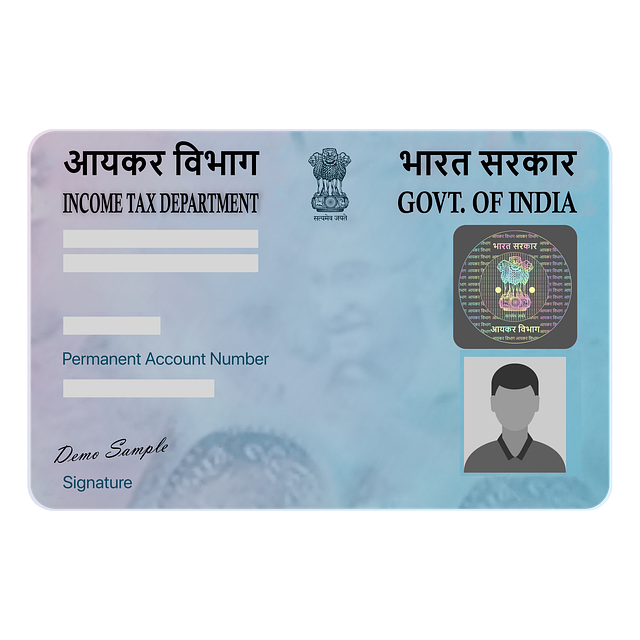Is Binance App Legal in India 2025: Current Status, Risks & How to Use It Safely
Author: Jameson Richman Expert
Published On: 2025-11-12
Prepared by Jameson Richman and our team of experts with over a decade of experience in cryptocurrency and digital asset analysis. Learn more about us.
Is Binance app legal in India is one of the most searched questions by Indian crypto users in 2025. This article explains the legal and regulatory context, tax implications, practical steps to use Binance (or alternatives) safely from India, and the compliance risks to watch. It draws on official guidance and reputable sources so you can make an informed decision about trading, custody and tax reporting.

Quick answer: is Binance app legal in India?
Short answer: yes — using the Binance app is not categorically banned for Indian residents as of 2025, but it operates under regulatory constraints. India has not criminalized the possession or exchange of cryptocurrencies, although private cryptocurrencies are not legal tender and the Reserve Bank of India (RBI) continues to urge caution. What matters most is how you interact with Binance: KYC/AML compliance, accurate tax reporting under Indian law, and using permitted payment rails. Always consult a qualified lawyer or tax advisor for personalized advice.
Why the legal status is complex: regulatory timeline and context
The regulatory picture for cryptos in India has evolved substantially over the past decade. Key milestones you should know:
- 2018 RBI circular: In April 2018 the Reserve Bank of India issued guidance restricting regulated entities from providing services to cryptocurrency exchanges and traders. This created market disruption for exchanges relying on banking channels.
- 2020 Supreme Court decision: In March 2020 the Supreme Court of India overturned the RBI’s 2018 circular, restoring banking access to many exchanges. This judgment is a major legal precedent that allowed Indian users to resume on/off ramps. (See general background on "Cryptocurrency in India" on Wikipedia for a timeline: Cryptocurrency in India — Wikipedia.)
- 2022 Finance Act — taxation and TDS: The Finance Act 2022 introduced a distinct tax regime: a 30% tax on income from transfer of virtual digital assets (VDAs) and a 1% TDS (tax deducted at source) on transfers, with effect from 1 July 2022. The tax policy clearly signals that India treats crypto as taxable property rather than legal tender. For official tax information consult the Income Tax Department: Income Tax Department of India.
- Ongoing regulation: By 2025 regulators continue to evaluate AML/KYC standards and the interplay between private tokens and the RBI’s Central Bank Digital Currency (CBDC). The RBI has consistently stated that private cryptocurrencies are not legal tender in India (see Reserve Bank of India).
Because policy evolves, exchanges and users must follow notifications from regulators and take a conservative approach to compliance.
How “legal” applies to Binance specifically
Binance is a global crypto trading platform offering spot trading, derivatives, staking, P2P and more. Whether the Binance app is “legal” in India depends on three practical criteria:
- Platform availability and local operations: Binance may restrict or change services in India based on regulatory requirements. At times exchanges withdraw local INR on-ramps or specific product offerings if compliance is uncertain.
- User compliance: Indian residents using Binance must comply with Indian laws — notably KYC/AML, disclosure rules, and the VDA taxation regime.
- Payment rails and banking partners: When banking partners or payment gateways decline to service crypto firms, users may need to use P2P (peer-to-peer) markets or regulated local exchanges to convert fiat to crypto.
In practice, many Indian users access Binance via its app or web platform while completing KYC, using supported P2P/OTC routes to deposit INR, and reporting taxes. This usage is not an explicit ban; it is an operational choice subject to compliance.

Checklist: Using the Binance app legally and safely from India
If you choose to use Binance in India, follow these steps to minimize regulatory and tax risk.
- Complete full KYC on Binance: Provide verified identity documents and address proof. This aligns with AML laws and lowers the risk of account restrictions.
- Use official deposit/withdrawal channels: Use Binance’s approved P2P partners or on-ramps that comply with Indian banking guidelines. Avoid unauthorized or informal payment channels.
- Keep detailed transaction records: Maintain trade logs, deposit/withdrawal receipts, wallet addresses and timestamps. These are critical for tax filing and audits.
- Report taxable events: Follow the 30% tax on transfer gains and the 1% TDS rules (as applicable). If unsure, engage a chartered accountant familiar with crypto taxation.
- Don’t use VPN to evade restrictions: Using VPNs to bypass geo-restrictions can breach Binance’s terms and may raise legal or compliance concerns.
- Consider custody risk: Understand that holding crypto on any centralized exchange carries counterparty and custodial risks — diversifying custody (e.g., hardware wallets) can reduce risk for long-term holdings.
How to create and verify a Binance account (practical steps)
Below are the usual steps for creating a compliant Binance account that Indian residents commonly follow:
- Register via Binance’s official registration page: Create a Binance account (referral link).
- Complete identity verification (KYC): upload PAN, Aadhaar or passport as required and follow liveness checks.
- Enable two-factor authentication (2FA) and strong account security measures.
- Use Binance P2P or approved local partners for INR deposits as enabled on the platform.
- Withdraw fiat only to bank accounts in your name and preserve receipts to support tax filings.
Taxes, reporting and compliance in India (what you must know)
The Indian tax framework for crypto introduced in 2022 has major implications for anyone trading on Binance:
- 30% tax on transfer gains: Any profits from the transfer of virtual digital assets (VDAs) are taxed at 30% in India. The tax applies to both retail and professional traders.
- No deductions and limited set-offs: General deductions such as business expenses or losses from other sources may not be allowed against VDA gains; check latest guidance for exceptions.
- 1% TDS on transfers: Transfers of VDAs are subject to 1% TDS in many cases, to improve tax reporting and tracking.
- Obligations for exchanges: Platforms operating in India or offering services to Indian residents may have to implement TDS collection, reporting and share user transaction data with tax authorities when required.
For authoritative tax guidance, consult the Income Tax Department and professional advisors. The tax provisions can be complex and subject to further clarifications from tax authorities.

Risks and enforcement to consider
Even though Binance use is not banned at large, Indian users face potential risks:
- Regulatory changes: Policy changes can affect how exchanges operate. Sudden changes could impact deposit channels or token listings.
- Banking disruptions: Indian banks sometimes refuse to process crypto-related transactions, forcing users to rely on P2P marketplaces or local exchanges.
- Account freezes or withdrawals: Exchanges may freeze accounts for suspicious activity or compliance issues; maintain clear KYC and proof of funds.
- Tax audits: Incomplete reporting or poor record-keeping can result in tax assessments and penalties.
- Scams and phishing: Centralized exchanges are often targeted; always use 2FA, official links, and be vigilant against phishing.
Practical examples: real-world scenarios
Example 1 — Retail trader using Binance P2P
An Indian trader completes KYC on Binance, uses the Binance P2P marketplace to buy USDT from local sellers paying via bank transfer, holds and trades stablecoins and spot tokens, and repays gains into INR by selling on P2P. The trader keeps bank receipts and trade logs and reports realized gains in her tax return under VDA rules.
Example 2 — Long-term investor using custody and tax planning
An investor buys major tokens on Binance, transfers a portion to a hardware wallet for long-term storage, and reports any disposals with documented cost bases and holding periods. The investor consults a tax professional to ensure compliance with the 30% tax and TDS obligations.
Example 3 — Using non-Binance alternatives for certain services
Where Binance restricts a service in India, a user might temporarily use a compliant local exchange or other global platforms that accept Indian users. Consider reputable exchanges and evaluate their regulatory standing and security practices.
Alternatives to Binance and referral links
If you want to evaluate other exchanges (for diversification or access to specific features), consider the following reputable platforms — sign-up links are provided for convenience (use at your discretion):
- Binance (official registration): Create a Binance account
- MEXC: Register on MEXC
- Bitget: Register on Bitget
- Bybit: Join Bybit
Each platform has different product suites, KYC processes and fees. Review their terms before committing funds.

Educational resources and guides
To improve your trading and compliance knowledge, consult the following guides and signal resources. These are educational resources that can complement your research:
- Top altcoins and strategy guide (Coinbase-focused) — helpful for diversification ideas.
- Binance trading course and PDF guide — practical Binance usage and strategy tips.
- Instant Ethereum trade alerts — example of trading signals and how to evaluate them.
- Guide to crypto signal Telegram groups 2025 — learn how to vet signal providers and avoid scams.
While signals and trading guides can be useful, they are not a substitute for due diligence, risk management and tax compliance.
FAQ — Common user questions about Binance and India
Is Binance banned in India?
No, Binance is not broadly banned in India as of 2025. However, there have been episodic restrictions on payment channels and specific services depending on regulatory clarifications and banking partner decisions. The key is to follow KYC, use permitted payment methods and report taxes properly.
Can I use Binance with a VPN if it is restricted?
Using a VPN to bypass geographical restrictions is risky. It may violate Binance’s Terms of Service, expose you to account suspension, and create legal or compliance complications. Instead, use approved alternatives or consult Binance support regarding availability in your jurisdiction.
Will the government confiscate my crypto holdings?
India has not implemented a general confiscation policy for private crypto holdings. However, seizure could occur under criminal proceedings or if holdings are linked to illicit activities. Maintain clear records and comply with reporting obligations to reduce risk.
Do I need to report crypto holdings on my income tax return?
Yes — if you realize gains or transfers that trigger tax events, you must report them under the VDA tax rules. Retain documentation and consult a tax professional for accurate filing.
Red flags and safety tips when using Binance or other exchanges
- Beware of phishing links — always access exchanges via official domains and bookmarks.
- Never share API keys, withdrawal 2FA codes, or seed phrases with anyone.
- Use hardware wallets or cold storage for significant long-term holdings.
- Regularly reconcile your exchange statements with bank records and trade logs.
- Understand the fee structure and how it affects your trading performance and tax calculations.

Conclusion — practical takeaway on “is Binance app legal in India”
By 2025, the question “is Binance app legal in India” has a nuanced answer: Binance app use by Indian residents is generally not banned, but it must be undertaken with attention to national regulations, KYC/AML compliance, and tax rules. The biggest legal issues are not the app itself but how you fund your account, whether you comply with reporting obligations, and whether you use approved channels. Keep accurate records, pay the required taxes (and TDS where applicable), and monitor regulatory updates.
If you plan to start or continue trading, take these practical steps now: create and verify your account on Binance if you choose to use it (Binance registration), maintain full trade and bank documentation, consult a tax professional for VDA reporting, and consider alternative platforms like MEXC (MEXC register), Bitget (Bitget sign-up) or Bybit (Bybit invite) as appropriate to your needs.
For strategy, token picks and tools to improve execution, review educational resources such as the Binance course and altcoin guides linked above (Binance trading course, altcoin guide). Remember: strategies are only useful when paired with compliance and risk control.
Disclaimer: This article provides educational information and does not constitute legal, tax, or financial advice. Laws and regulations change — consult a qualified professional before making decisions related to crypto in India.